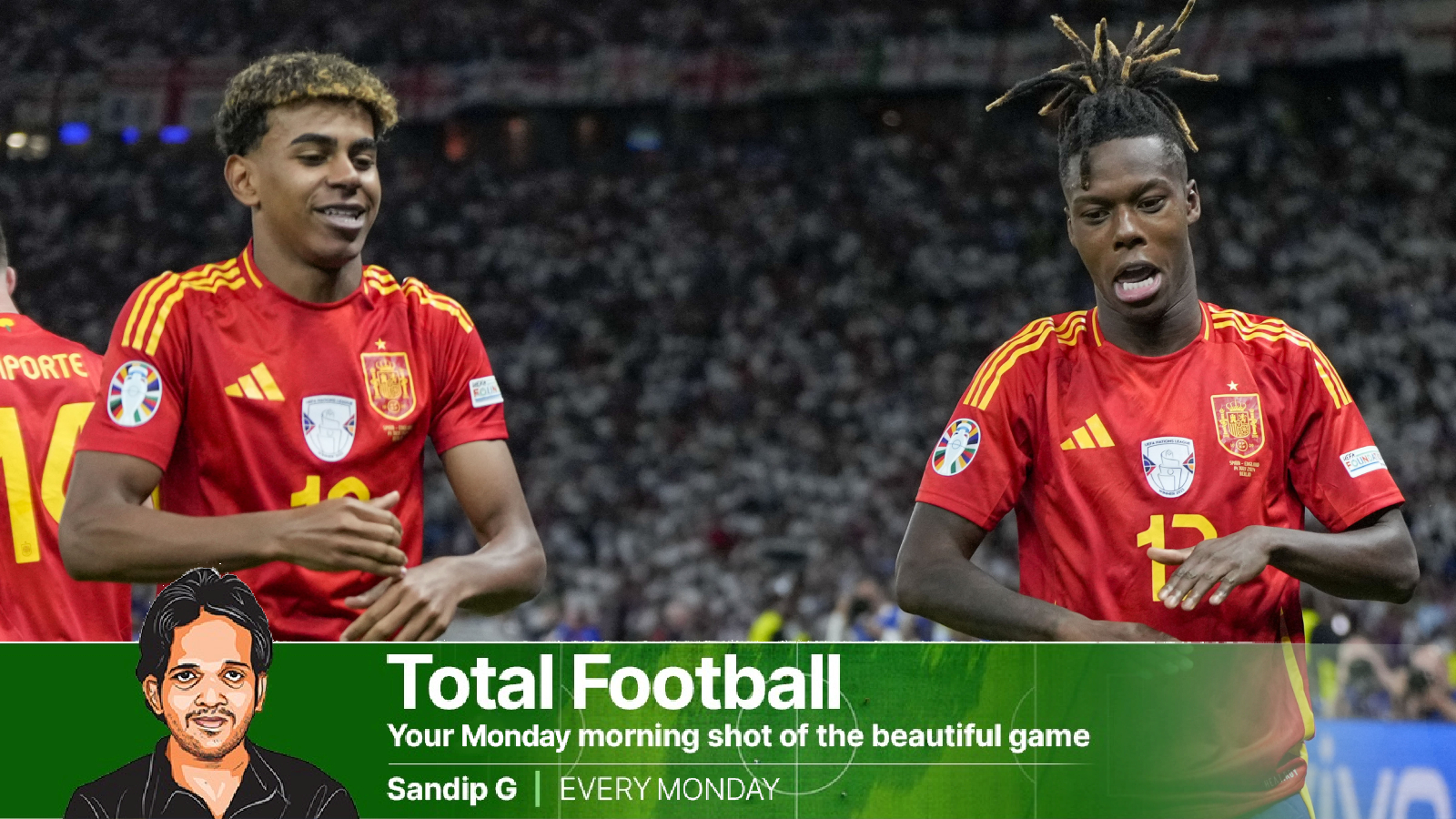The grandest sporting exhibition in Paris, the Olympics, is just around the corner, and we’re in for a treat as the world’s top athletes gather to compete in various events. However, one sport that’s often overshadowed in this spectacle is football, and its absence of superstars has left many fans wondering what the sport is all about.
The reason for this anomaly lies in the transfer of Kylian Mbappé to Real Madrid, which has prohibited him from participating in the Olympics. While some French politicians attempted to negotiate an exemption, the Spanish giants refused, leaving Mbappé to watch from the sidelines as the Olympic torch is lit and the contingents parade along the River Seine.
[Image: Kylian Mbappé of France reacts after losing a semifinal match between Spain and France at the Euro 2024 soccer tournament in Munich, Germany, Tuesday, July 9, 2024. (AP Photo/Antonio Calanni)]
But Mbappé’s absence is just the tip of the iceberg. Many of France’s rich pool of footballing talent will be absent from the Games, and it’s not just limited to the French team. Spain is missing Nico Williams and Lamine Yamal, Argentina is without Messi and a host of COPA America winners, and Egypt is without Mohammed Salah, who has chosen to play for Liverpool instead.
[Image: Spain’s Alvaro Morata holds the trophy as he celebrates with his teammates after winning the final match between Spain and England at the Euro 2024 soccer tournament in Berlin, Germany, Sunday, July 14, 2024. Spain won 2-1. (AP Photo/Frank Augstein)]
So, what’s going on here? Why is football’s presence at the Olympics so underwhelming? The answer lies in football’s identity crisis. Is it an exhibition of superstardom, or a youth development vehicle, or even an accidental parody? It’s a paradox that’s difficult to reconcile.
[Image: Football at the Olympics is a mix of everything, and like all things without a sharp, pinpoint focus, it is complex and confused.]
The sport has been a regular fixture at the Olympics since 1896, but its relationship with the Olympics has been tumultuous. Post the first World War, it was briefly the most coveted medal in football, but two years later, Uruguay would host the first World Cup and change the history of the sport and its relationship with the Olympics.
The sport was absent from the Los Angeles Games of 1932, and it wasn’t until the Berlin Games that it was reinstated. But even then, teams had to meet the definition of amateurism. It wasn’t until the 1984 Los Angeles Games that the rules were tweaked to allow professional players, but with restrictions.
Football at the Olympics, thus, feels like a forced coexistence, showing both in poor light. Perhaps, football and Olympics in this era are not made for each other, perhaps both need a mutually beneficial divorce. Or maybe a functional solution could be worked out – like making it a wholly U-21 or U-19 event, or revamping the qualification route, or breathing some context into it, rather than packing an already packed calendar and letting football unfold as a farce.
So, what’s the solution? Well, for starters, we can all agree that football and the Olympics are meant to be a celebration of the sport and its athletes. Perhaps it’s time to rethink the format and make it more meaningful and engaging for fans. Who knows? Maybe one day, we’ll see a truly competitive and exciting football tournament at the Olympics.
Follow us on all social media platforms for more updates on the Olympics and all things football!
